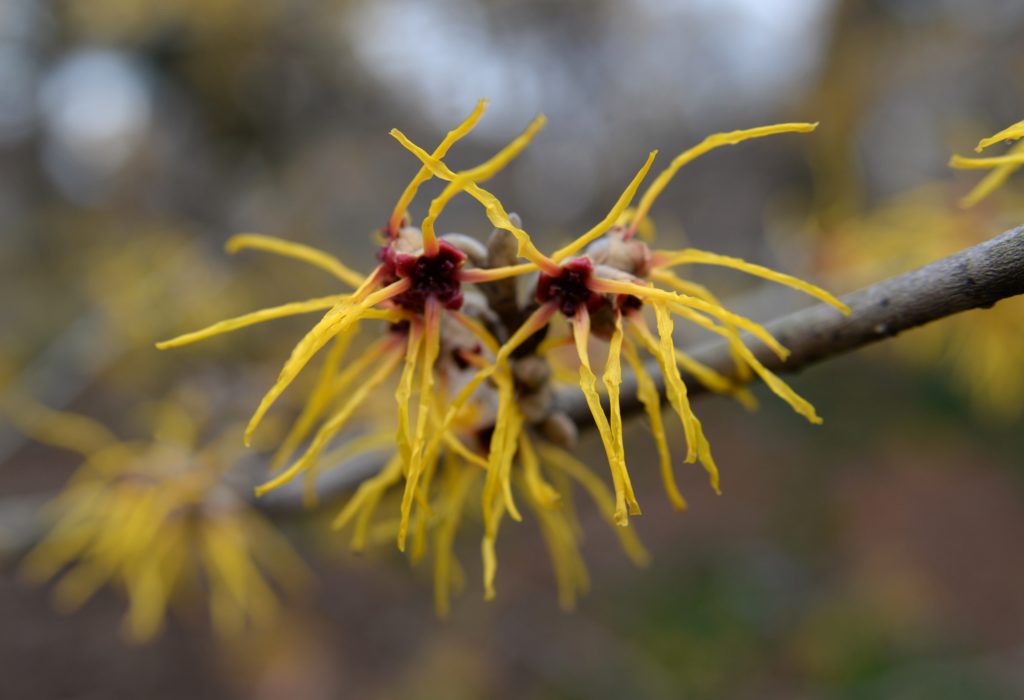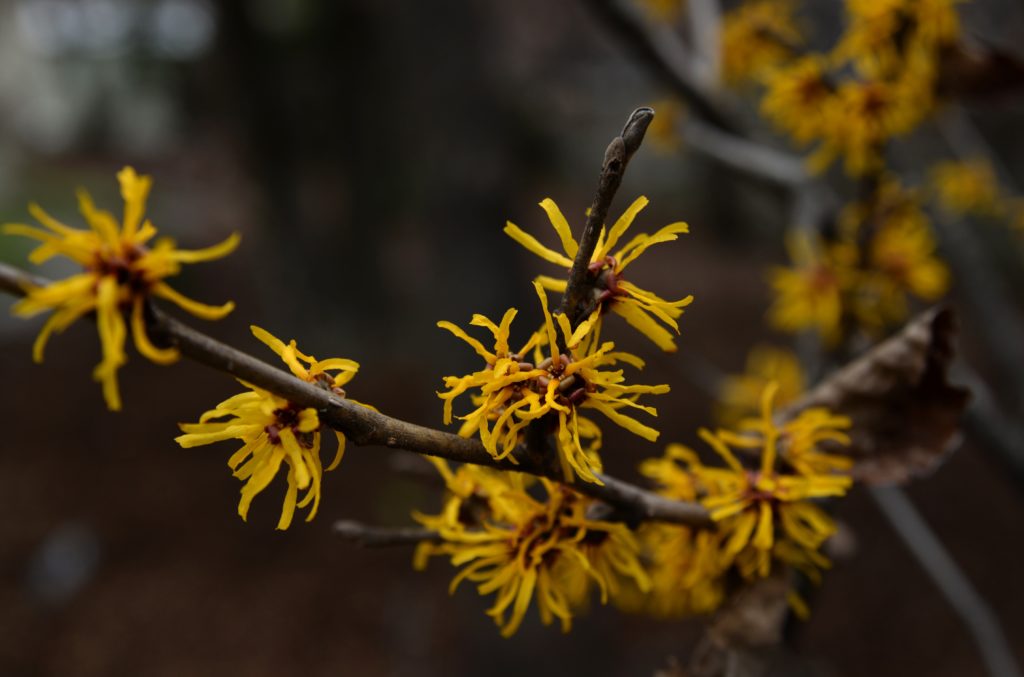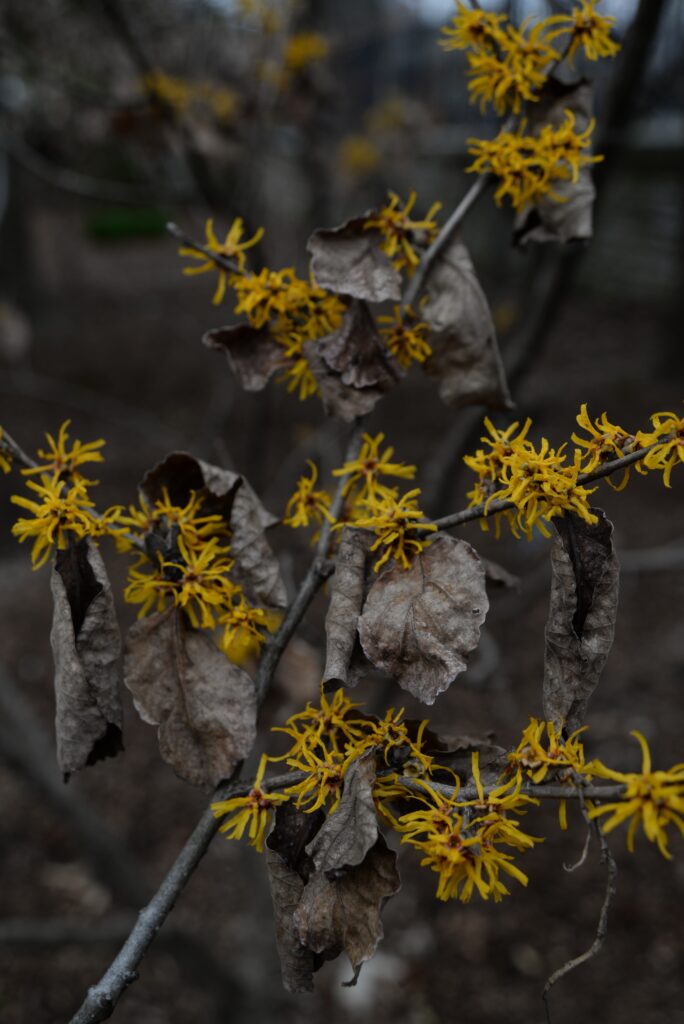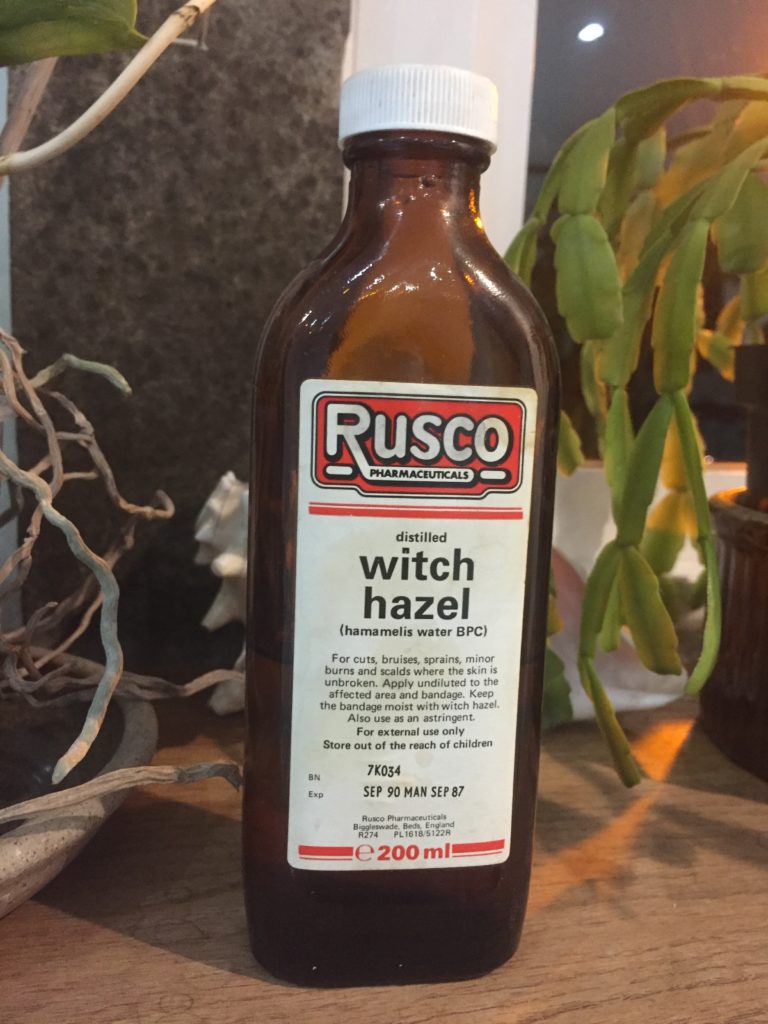
Strictly not a tree but a large shrub, Witch Hazel flowers early, bringing a show of yellow blooms to the garden in late winter and early spring.
Uses
The seeds are reputed to be edible and the twigs are often used for dowsing for water. The seeds explode out of the pod so violently they are called ‘snapping hazelnut’ in North America.

Myths and legends

Witch hazel was widely used by the First Nations of North America and its properties were shown to the European settlers when they first arrived.
The Osage tribe used Witch hazel bark to treat skin ulcers and sores; the Potawatomi steamed twigs over hot rocks in their sweat lodges to soothe sore muscles; the Iroquis brewed a tea to treat dysentery, colds and coughs. The Mohegans also showed settlers how to use the Y shaped hazel rods for dowsing ( an ancient method for detecting underground water).The name comes from ‘wyche’ and Anglo Saxon word for bend or pliable, referring to the twigs ability to bend towards the water.
Some believed tea made from Witch hazel leaves and bark would increase occult powers and many modern witches consider it a magical herb, using it to keep away evil and mend broken hearts.
Photo by Laura Ockel on Unsplash
Medicinally
Tea made from the leaves and bark relieves bleeding of the stomach and bowel complaints. An injection of the tea cures inwardly bleeding piles; it is also good to stop internal and external bleeding. A commercially produced extract of Witch Hazel has been used for centuries as a household remedy for burns, scalds, inflammatory conditions of the skin and to soothe insect bites.
This information is purely for interest, any use of this as a medicine needs to be taken under the instruction and guidance of a registered herbal practitioner.

Medical disclaimer
This post is not intended to provide diagnosis, treatment or medical advice. Any mention of medicinal uses are for informational purposes only. The use of any herb or derivative is entirely at the reader’s own risk. The author of this post cannot be held liable for anyone using these medicines. It is strongly advised that any usage is in consultation with a registered herbalist and/or qualified doctor
« Back to blog page